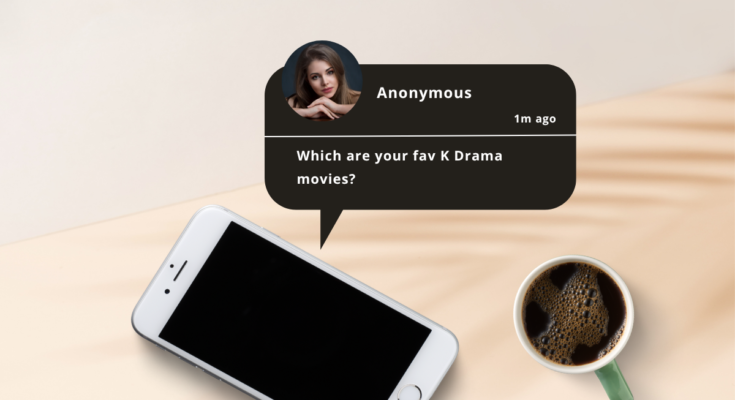At 2AM, the world is quieter, but your thoughts are louder.
That’s when it hits. The urge to say something you’d never say out loud. Not because it’s wrong. But because it’s real. Unfiltered. Messy. Unrehearsed. The kind of truth that only shows up when you’re alone, phone in hand, scrolling through your own overthinking.
And that’s where it begins.
Welcome to the late-night confessional. The anonymous kind.
Why Do We Feel So Much at 2AM?
Because timing changes everything.
At 2PM, you’re a professional. A student. A planner. A doer.
At 2AM, you’re just… human.
Sleep-deprived vulnerability has a way of lowering our guards. Our digital selves, usually curated and filtered, start cracking open.
It’s not just you. It’s everyone.
There’s a reason most anonymous confessions are sent between 1AM and 3AM. It’s when the mind’s gatekeeper, logic, takes a backseat, and emotion takes the wheel.
The Confession You Didn’t Know You Needed to Say
Not all confessions are dramatic.
Sometimes, it’s a compliment you never gave.
Sometimes, it’s a regret you thought you buried.
Sometimes, it’s a joke, a crush, a “just so you know.”
But the power isn’t in what you say.
It’s in knowing you finally said it.
What Actually Happens When You Hit Send?
Let’s break it down.
1. A Chemical Shift in Your Brain
The moment you write something vulnerable, even anonymously, your brain gets a dopamine release. Similar to venting, journaling, or even therapy.
Except this time, someone’s reading it.
It’s human connection, without the risk of rejection.
2. Curiosity, Ignited
The person receiving your confession feels it too.
Their night just changed. They start wondering:
- Who could’ve said this?
- Why now?
- Is this about me?
A simple message turns into a full-blown mystery.
And we all know, mystery is the most underrated dopamine hack of the digital age.
3. The Feedback Loop Begins
If you sent it on a platform like SecretNote.me, here’s what makes it different:
- No identity tracking. You’re safe from screenshots, receipts, or regret.
- Auto-deletion. Your message disappears after being read. Like it never existed. Except in their memory.
- End-to-end encryption. Even the app doesn’t know what you said.
That’s not just privacy. That’s digital intimacy with a safety net.
Not All Confessions Get a Reply, And That’s Okay
Here’s something no one tells you:
Silence is not the absence of impact.
Just because they didn’t reply doesn’t mean they didn’t feel it.
Some people aren’t ready to respond. Some are stunned. Some are silently grateful. But every confession leaves a dent. And sometimes, that’s all it needs to do.
The Confession Paradox: It’s Not About Them. It’s About You.
You think you’re sending a message to someone else.
But what you’re really doing… is setting yourself free.
Even if no one knows it was you.
Even if nothing changes.
Even if it was just a whisper into the void.
You said it. You named the thing.
And that’s how the healing begins.
So, Why Do People Keep Doing This?
Because it works.
Ask anyone who’s ever typed “I still miss you” into an anonymous box at 2:17AM.
Or the one who said, “I hope you’re okay, even if we don’t talk anymore.”
Or the one who finally asked, “Did you ever feel the same?”
These aren’t just messages. They’re micro-revolutions.
Tiny acts of emotional courage.
The 2AM Confession Is the Modern-Day Truth Serum
Think of it this way:
- Diary entries used to stay locked away.
- Drunken texts used to be risky.
- Face-to-face honesty? Terrifying.
But anonymous messaging platforms like SecretNote.me changed the game.
They gave people:
- A space to express without consequences.
- A place to explore truths without labels.
- A channel where vulnerability isn’t weakness, it’s design.
This isn’t escapism. It’s evolution.
What’s the Risk? And Why We Still Do It Anyway
You could say the wrong thing.
You could overthink it.
You could regret it in the morning.
But here’s the thing:
Suppressing your truth is often more dangerous than expressing it.
What’s bottled up will find a way out, sometimes in worse ways.
An anonymous confession at 2AM isn’t reckless. It’s release.
And when done with care, it’s one of the healthiest digital habits Gen Z has built for itself.
Real Talk: What Kind of Confessions Do People Send?
Let’s get specific. Here are some actual examples that show up on SecretNote.me (names hidden, obviously):
- “You looked so happy today. I hope it’s real.”
- “I’m sorry I ghosted you. I was overwhelmed.”
- “I’ve liked you for two years. I just never knew how to say it.”
- “I know what you’re going through. I’ve been there. Stay strong.”
No trolling. No clickbait.
Just people being… human.
Why SecretNote.me Feels Different From Every Other DM App
Let’s be honest. Most platforms push attention, not authenticity.
But SecretNote.me is built for:
- Emotional clarity
- Anonymous vulnerability
- Confession without consequence
It’s not trying to become the next social media obsession.
It’s trying to become the place where your inner voice finally gets airtime.
And maybe, just maybe, someone else needed to hear it too.
What This Tells Us About Gen Z and Digital Culture
This generation isn’t afraid of feelings.
They’re afraid of being punished for feeling them.
So they’re building tools that protect expression instead of policing it.
Anonymous confessions at 2AM are just one symptom of a bigger shift:
From performative posting to private processing.
From curated personas to honest moments.
From loud platforms to quiet revelations.
Say It, Even If Anonymously
You don’t always get closure.
You don’t always get a reply.
You don’t always get to know what happened next.
But sometimes, the act of saying it is enough.
If 2AM brings you a truth you’ve been carrying for too long, don’t wait for the perfect moment.
Platforms like SecretNote.me exist for this exact moment.
Let it out.
They’ll never know it was you.
But you’ll know you finally said it.



